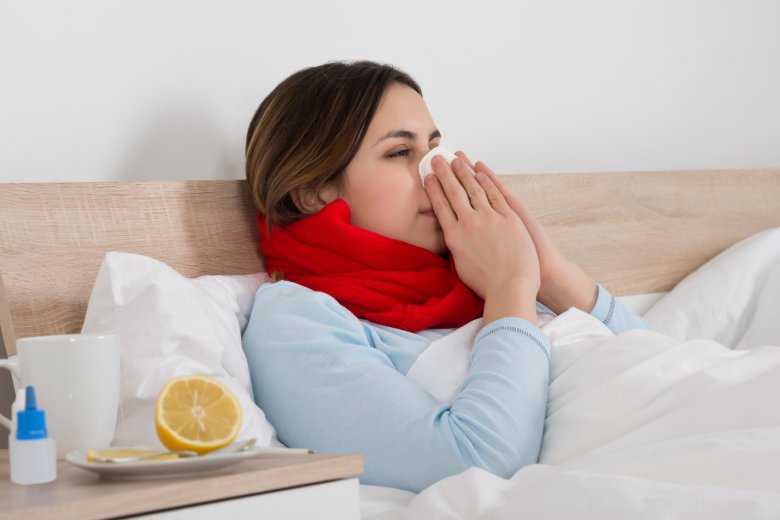- December 17, 2025

Do you know someone who has never been cold? The answer to 99.9% is 'no'. Though none of us is striving for it, each of us knows it. Rhinitis, cough, malaise, fever, conjunctivitis or sore throat are symptoms of upper respiratory tract infections or, more simply, a cold. In order to win quickly and effectively against the disease, it is worth to learn how it occurs.
Let's assume that in our environment there is a cold person, and consequently, viruses are found in the air. They get to the airways through the droplets. They penetrate the epithelial cells, i.e. the cells covering the nasal cavity, throat, larynx, sinus. Then they multiply, causing local inflammation, which we feel in the form of swelling and increased production of secretion of mucosal glands. With the spread of viruses in our body grow the so-called general symptoms such as fever, muscle pains or bad mood. The highest severity of infection occurs about 2-3 days, but some symptoms persist up to 3 weeks.
You can't avoid cold viruses while living normally. They are waiting for us at work, at school, on the tram and on the street. Surely everyone knows that you have to dress properly, eat a lot of fruit and vegetables, avoid stress, do sports, take care of hygiene and quality of sleep. Despite this, hundreds of patients report every day to the pharmacy in search of rescue. It is therefore necessary to have a plan B.
Babcina tea with honey and raspberry juice, hot broth, warm blanket and rest in bed are methods passed on to us by older generations. In case of fever we should drink large amounts of fluids to replenish the water lost as a result of increased evaporation through the skin and respiratory tract. What is interesting, in the light of the latest research, it is not justified to consume products rich in vitamin C, because its supply - greater than demand - does not condition a quicker recovery.
The most popular cold preparations contain paracetamol with analgesic and antipyretic effects, acetylsalicylic acid which, apart from its analgesic and antipyretic effects, also has anti-inflammatory effects, anti-cough dextromethorphan or phenylephrine which reduces airway mucosa congestion. An innovative product on the Polish market is Quixx Grip-protect. Applied at the beginning of the disease, it effectively protects the epithelium of the respiratory tract and limits the penetration of pathogenic viruses into the body, thus contributing to the reduction of symptoms of infection. Importantly, it can be safely used by pregnant women, breastfeeding women and children. Preparations containing purple echinacea (Echinacea purpurea) and preparations containing large amounts of zinc have proved to reduce the duration of symptoms. Let us remember that the use of antibiotics in the vast majority of viral infections is not justified and does not reduce the risk of complications.